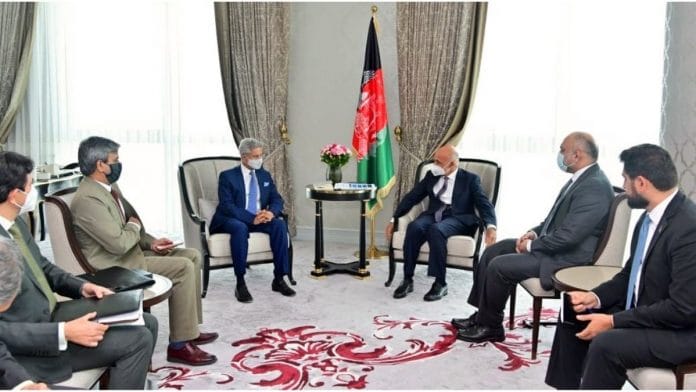India, and its foreign policy specialists, are in a tight twist over events unfolding across the Hindu Kush. The events are not without warning, though. But since fiction prevails over cold-steeled policies, it is important to demolish five of the prime myths overseeing Afghanistan.
Myth One – Afghanistan has never been conquered
The Afghans, read the Pashtuns, have always defeated the invader. There is much to be said for Afghan resilience, and since both London and Moscow got bested by the Afghans, great weightage has come to be given to a line that this land is unconquerable. But beginning possibly with the Achaemenid, then the Mauryan, Greek, Arab, Mongol, and Mughal, Afghanistan has seen invaders and occupiers by the multitudes. Each has added to the culture and psychology of the country, as all invaders do. Their rules varied from decades to centuries, until a more powerful opponent arrived, or became simply fatigued, for Afghanistan can be exhausting.
Myth Two – Afghanistan is the ‘graveyard of empires’
Since Imperial Europe was defeated by the Afghans, popular sentiment has been to label Afghanistan as the ‘graveyard of empires’. This myth stands exposed by the accounts of a long Indian occupation of Afghanistan, and in the last case even the vivisection of the country.
Decades before Afghanistan came to be unified, Maharaja Jaswant Singh of Marwar governed Kandahar for almost a decade and died in Jamrud in 1678 (Sharma, G., 1973). And in May 1834, the Punjab army led by the irrepressible Hari Singh Nalwa invaded Afghanistan and wrested areas that have since never been returned. Afghanistan originally stretched up to River Indus, prime amongst which was Peshawar. Pakistan, therefore, would have been a lot smaller if it had not been for the military prowess of Hari Singh Nalwa and Maharaja Ranjit Singh.
Also read: Don’t burden Delhi-Washington ties with Afghanistan, or issues like democracy under Modi
Myth Three – Afghanistan was the stage for the Great Game
Gentlemen’s clubs in 19th century London and St Petersburg were rife with rumours, tales and myths about the activities of all kinds of shifty spies leaving a trail through Afghanistan.
The Great Game, in fact, conjoined India and Afghanistan in the 19th century, just as millennia of trade, travel and invasions had done earlier. The match was played over Afghanistan but the scoreboard was set for India. The tournament was over India, the greatest imperial prize for Europe.
Myth Four – Mujahideen were a response to the December 1979 Soviet invasion
The players have certainly changed since the original ones of the 19th century but the myths persist. One surrounds the principal participants now, as though the Taliban were some organically grown missionaries on a holy mission. The Taliban are not spawned from the CIA-ISI-funded mujahideen of the Soviet invasion era. Their progenitors were, in fact, created by the machinations of late Zulfiqar Ali Bhutto in 1973 with the raising of a new ‘Afghan Cell’ in Pakistan Foreign Office.
A larger pan-Islamic vision of the Pakistan Peoples Party began the process of arming rebels in Afghanistan, so as to pinch Kabul away from its Pashtunistan mode, and cosines with India. Even the CIA funding began six months before the Soviet invasion in December 1979.
In their current form, the Taliban were of course born in 1994, during the reign of late Benazir Bhutto. The midwife in both instances was, ironically, Maj Gen. Nasrullah Babar (retd).
Myth Five – Pakistan is a winner from a Taliban takeover of Afghanistan
The war-gamers in GHQ Rawalpindi, while not the brains behind birthing the mujahideen groups and the Taliban, would have certainly jumped on the opportunities offered. But Pakistan isn’t a long-term beneficiary of a Taliban rebirth.
While the Taliban is not a monolithic entity, it attracts, and repels, various chieftains and warlords as the occasion warrants, and it remains a Pashtun grouping. As with many Indians suffering from Partition remorse, the Pashtuns chafe at the Durand Line that divides their lands between Afghanistan and Pakistan. This sticking point will remain a bogey in their relations with Islamabad, and potentially pushes Pakistan into its own two-front pincer.
Also read: A civil war in Afghanistan won’t be a cakewalk for Taliban. That’s opportunity India
India and Afghanistan
India, on the other hand, has ridden piggyback for far too long on outsiders in Afghanistan. Its timidity has cost it its place amongst the negotiating nations. The 2011 Strategic Partnership agreement with Afghanistan means nothing now despite then-President Hamid Karzai declaring, “Afghanistan will not only not forget this but remain grateful to India forever.” For the simple reason that domestic politics override larger national security interests and the passing of the Citizens Amendment Act, which includes Afghanistan as a perpetrator of atrocities, has erased decades of goodwill and smart investments.
Read the fiction
Even as India lacks the stomach and the spine to employ its military in out-of-area operations, New Delhi could still play the game in Afghanistan. After all, it is the stage for the greatest piece of Great Game fiction ever written, Kim by Rudyard Kipling. Most Indian practitioners haven’t read the masterpiece, and those who have aren’t able to practice it, a pity since it teaches everything about the Game. “The Game is so large that one sees but a little at a time,” says Mahbub Ali, the Pathan ‘horse trader’, to Kim – ironically, in Quetta!
The author is a Congress leader and Editor-in-Chief of Defence & Security Alert. He tweets @ManvendraJasol. Views are personal.
(Edited by Prashant Dixit)






